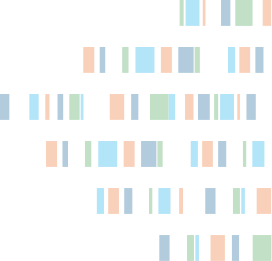Advances in sequencing technology have made it possible to produce large multi-locus datasets required for species tree analyses. One challenge with constructing high throughput sequencing datasets, however, is that missing information is propagated at different steps in the sequence preparation process. To date, species tree studies have focused on filtering and removing errors that occur at particular loci. Given the way that high throughput sequencing datasets are constructed, however, large amounts of error or ambiguity may also manifest across individuals. Here we use a novel tree-based multivariate clustering method to identify and remove individuals with low phylogenetic signal in a nuclear sequence capture dataset for the Iochrominae clade (Solanaceae). Our results suggest that the low quality tips are the result of the library preparation process (e.g. unequal pooling) rather than poor capture due to phylogenetic distance from the reference species. After implementing the clustering approach and removing low quality tips, we construct an Iochrominae species tree that resolves a number of unknown relationships. We propose this pipeline as a valuable tool for species tree reconstruction with phylogenomic datasets containing variable levels of missing data.

Home » Filtering of target sequence capture individuals facilitates species tree construction in the plant subtribe Iochrominae (Solanaceae)
Publications
Filtering of target sequence capture individuals facilitates species tree construction in the plant subtribe Iochrominae (Solanaceae)
myBaits
Daicel Arbor Biosciences
5840 Interface Dr. Suite 101,
Ann Arbor, MI 48103
1.734.998.0751Ann Arbor, MI 48103
©2024 Biodiscovery LLC
(d/b/a Daicel Arbor Biosciences)
All Rights Reserved.
(d/b/a Daicel Arbor Biosciences)
All Rights Reserved.
Design and development by Raincastle Communications.
